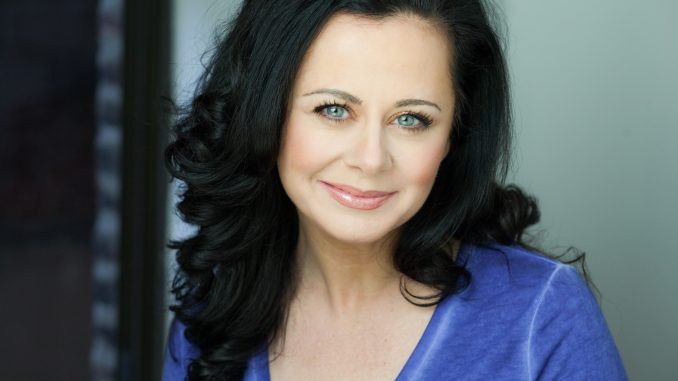
The title “Belfast Blues” has two meanings. One refers to Geraldine Hughes’ “Belfast blue eyes,” described as such to her by filmmaker George Schaefer. The other refers to the euphemistically-named Troubles, a long and bloody conflict between unionist Protestants loyal to the United Kingdom and nationalist Irish Catholics who sought independence for Northern Ireland.
Hughes was born into this conflict, and her one-woman show “Belfast Blues” explores the manner in which Hughes and her family struggled to survive a city plagued by violence. The play opens with her birth, which occurred in an overstuffed, understaffed hospital. But even before the playwright herself is introduced into the story, we see Hughes’ pregnant mother sneaking an explosive device across the street, past a British soldier. Right out of the gate, Hughes imbues her tale with an impressive level of intensity given the barebones approach of a one-woman show.
The story truly begins to pick up steam after the death of Bobby Sands, the Provisional Irish Republican Army member-turned-political-prisoner who led a now-infamous hunger strike before finally dying of starvation in 1981. Sands’ martyrdom escalated the Catholic-Protestant conflict, and much of “Belfast Blues” is situated firmly in the aftermath. At one point, Hughes describes moving from a one-bedroom apartment to a four-bedroom home, but the sense of elation at her new living quarters is almost immediately undercut by its proximity to a large wall separating Protestants and Catholics, over which both sides lob their fair share of hazardous objects and weapons.
It’s a harrowing tale, one that even involves the gruesome death of children, but Hughes still manages to find humor in the colorful characters she surrounds herself with: her worrisome mother, her drunk father and a local shopkeeper and family friend. These characters aren’t entirely developed, but they don’t have to be. They’re simply there to provide a necessary levity from The Troubles.
In her early teenage years, Hughes was cast by the aforementioned George Schaefer for the television movie “Children in the Crossfire.” The film industry would later become her salvation — though at the time, Hughes did not believe herself to be an adequate candidate for the role of “film star” — as it would grant her the connections that allowed her to eventually leave Belfast in pursuit of an education at the University of California, Los Angeles, paid for by Schaefer himself.
Hughes’ memories feel very lived-in, even as she’s relaying them in a simple monologue, and even as she’s the one playing every character. There’s something childlike about the way she performs these characters, both physically and verbally, which gives the play a concrete sense of perspective. After all, it’s all from the point of view of a young Irish girl with some Belfast blues.
“Belfast Blues” played at the McKenna Theater on Oct. 14 and 15.
